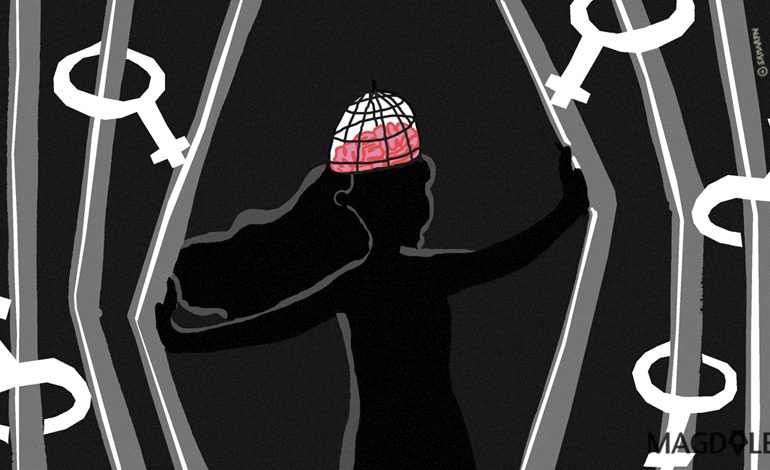My Patriarchal Extended Family and Why I Dread Spending Holidays with Them

Caring for your family is inevitable, but it is heartbreaking if you can only do so by avoiding them in real life. Sometimes the only way to actually love someone without hurting them – or yourself – is to stay away from them.
When I was growing up, my mom acted as my “great wall.” I wasn’t aware of all the flaws and harsh comments surrounding me because my mom caught all the bullets shot at the family. I barely even knew how my dad was like since he worked overseas a lot and all my mom told me about him were stories that made him sound like a superhero.
When my parents divorced, it was like the foundation of everything around me collapsed. I stood there, holding onto what’s left, trying to replace the “lost” foundation. But what hit me most wasn’t the sudden shift of responsibilities, it was the exposure to all the things my mom has hidden from me for one reason only: to protect me.
There were numerous things that I was suddenly exposed to that shocked me, but top of my list is the realization that my dad and his extended family in Sumatera are truly patriarchal. I realized this even before I even knew what the word “patriarchy” meant.
Ever since I was a kid, I have noticed a pattern in my dad’s family works. The women are either in the kitchen or in the washing room, while the men are always sitting in the porch reading newspapers and demanding coffee from their wives. Among the cousins in my extended family there are only five girls in the house and six boys. Two of the girls are still young, while the other is much older. Because of these most of the “women’s chores” are assigned to me and my younger cousin “Jeje”.
On top that, I always felt as I was under a magnifying glass when I was around them. It started off with comments that I was not used to hearing in Bandung, where I lived, like rude comments about my body, or the way I dress. Or sometimes they would just shake their heads in subtle disagreement with how I live my life. I used to justify with thoughts like, oh maybe I’m just not used to how people treat each other here, I mean, maybe everyone is like this here. Yet as I grow older, it’s getting harder to justify.
Things escalated as I became a young adult. Now I was expected to take up the role taken by other women in the family like my grandmother and aunts. I was not to wake up late – and late for them is eight in the morning. I was to wear feminine clothes and cover up as much as I can, I was to be able to cook and clean – and they expect that is all we would want to do. I was expected to be the perfect wife and the perfect daughter, but what good would that do if I could not become myself?
Things are harder during the month of Ramadan, especially the few days leading to the Ied, the holiday that celebrates a month of fasting. The women are expected to wake up two hours earlier than the men to cook and prepare for suhoor, the early morning meal muslims have before fasting. When the men in the family finally wake up around 3AM, they are greeted with a table full of meal prepared by the women. All they have to do is sit on the dining table – their wives would even get up to scoop up rice for them.
After they’re done with their meals, they leave the plates (and fish bones) on the table and walk to the lawn to talk over coffee and last drinks before fasting, while the women clean up the mess on the dining table and spend the rest of their remaining time washing the dishes. After sunrise prayers, everybody sleeps – but of course the women have to wake up before eight, lest they’d be frowned on.
They push the young women of the family to strive for their dreams, but were only proud with those who were enrolled in medical school, and who cover up and could cook or clean. Women like me, who dresses differently, acts differently, views things differently, and even express some hesitation when told to do the women’s chores, is an outcast who doesn’t belong and will never belong.
I’ve told my dad how sometimes I feel uncomfortable in the family, but he insists that it is part of the culture. I try to understand it and respect it for what it is, but I can’t help but thinking if it will ever change. Will my children have to put up with this? How could they when I would surely teach them otherwise in our own home? Will women in my family always be treated this way from generation to generation?
Even as a little girl I knew that there must be something wrong with the rigid role of women being in the kitchen and only to serve the men. As a person who couldn’t hide their expressions, I always looked resistant towards cooking or cleaning or every other stereotypical role I’m supposed to do as a woman. They may think I have no appreciation for their culture, but at least they know that not all women are willing to accept such outdated gender stereotypes and expectations.
If being that way makes them happy, it’s fine with me, but they shouldn’t judge the way I live my life. I may not be a doctor, I may not be able to cook and I certainly won’t be a submissive wife who caters to all my future-husband’s needs, but I am who I want to be.
Find out how hoaxes hampers efforts to pass the Anti-Sexual Violence Bill.
Illustration by Sarah Arifin






















